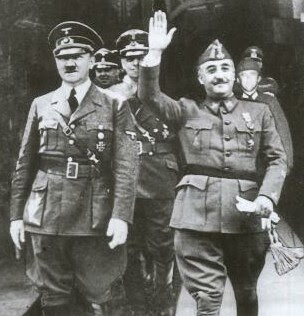"Libro de hechos sobre la República Popular de Rio de Argento"

Bienvenidos Compañeros!
This Government sponsored information site will provide you with all the facts and figures you will need to be aware of when dealing with the People's Republic of Rio de Argento on the international stage. I have been authorised by El Presidente himself to release certain documents into the international sphere, after years of being highly classified, in order to promote understanding, cooperation and brotherhood with the peoples of other nations.
We will begin with a brief history of the nation and our most glorious revolution, as well as an overview of our geography, our political system and of course, a biography of our beloved leader, Presidente Antonio de la Mancha. I hope, that over the course of this information pack, you, dear reader, will come to the conclusion that so many before you have reached; El Presidente is the only political leader who can be trusted with the hopes and fears of the working man, and that only through him (and the Party) can the people free themselves from the chains of the imperialist aggressors.
For those with only the slightest of interest in our glorious nation (by which I mean 'likely Capitalist pig-dog aggressor Imperialists'), I have prepared a quick summary below. For those of you with a deeper curiosity about our nation, please read on...
Official Title: The People's Republic of Rio de Argento
Government Type: Socialist Dictatorship
Population: Approx 7 Million
Area: 9,123,012 Km2
Current President: Presidente Antonio de la Mancha
Current Foreign Minister: People's Commissar for Foreign Affairs Jose Landrez
Major Industry: Sugar cultivation, processing. Cigars, Pineapple.
Currency: Peso
Official Language: Spanish
Racial Make-up 65% Hispanic, 15% Afro-Carribbean, 10% mixed race, 6% Amerindians, 4% other.
For the answer to any questions not addressed within the pages of this information site, please contact the Argentan Consulate in your nation, or, failing that, the Argentan Foreign Affairs Commissariat, by Telegram.
Hasta la victoria siempre!








